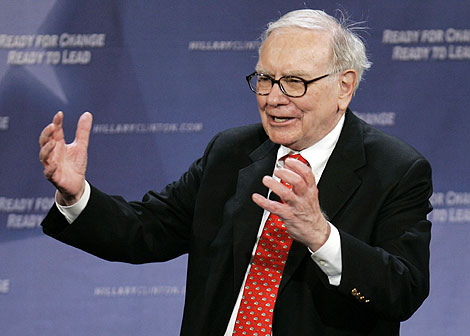Lees-top 10: Lessen in het begrijpen van toekomstige waarde

1. Warren Buffett: An appreciation
As Warren Buffett turns 90, the story of one of America’s most influential and wealthy business leaders is a study in the logic and discipline of understanding future value.
2. How to Make Rational Decisions in the Face of Uncertainty
As we’re battling a virus that scientists still don’t fully understand, watching the stock market sink, then soar, then sink again, and facing a contentious election, the future seems completely unpredictable (instead of merely as unpredictable as it has always been). When we feel such heightened uncertainty, our decision-making processes can break down. We may become paralyzed and afraid to act, or we may act on the basis of bias, emotion, and intuition instead of logic and facts.
3. Beware of the Working Capital Safety Net
Regardless of where an organization sits in its response to the COVID-19 pandemic—ranging from crisis management to growth mode to something in between—effectively managing working capital will likely continue to be paramount for finance and other leaders as long as uncertainty persists around the pandemic’s continuing impact on businesses and their liquidity.
4. The Central Conundrum of Covid-19 Entrepreneurship
The central dilemma facing investors and entrepreneurs in this environment is whether to view the crisis holistically or opportunistically. In other words, are they to expect a long-term shift requiring a fundamental change to their investment thesis, or simply a temporary deviation from the norm? The stakes are high indeed. It is no exaggeration to say that the future of many venture funds and start-ups depends on which of these two visions of the post-Covid future turns out to be true – or truer.
5. Generations Y and Z: What do they want?
During 2019, FM set out to talk with Gen Y (Millennial) and Gen Z management accountants about their goals, work preferences, and priorities and to get a sense of how employers could best retain and develop workers in those generational cohorts. We did so with data from the Deloitte Global Millennial Survey 2019 in hand. The annual survey showed two groups that were at once ambitious professionally and concerned about issues including climate change and business having a positive impact on society.

6. 6 Ways to Come Back From the Pandemic With a Stronger Team
Working from home has accelerated innovative team-building trends. How to make traits like agility, collaboration, and candor a permanent part of our management process.
7. Finance leaders see uneven recovery, business impact still unfolding
Economists have been trying to predict whether there will be a V, U, or L-shape COVID-19 recovery in countries, and, increasingly, we hear that it may be a case of a K-shape recovery where cash-rich companies or businesses in certain industries — technology, pharmaceutical, and grocery — will thrive, alongside those hardest hit by the pandemic — hospitality and tourism, aviation, and retail — which will continue to struggle.
8. Introducing Excess Value: A Metric for Private Market Outperformance
The gains from private market investing are best understood relative to public benchmarks. But there has been no way to compare the two in currency terms – until now. One of the main reasons that investors allocate capital to private markets is to achieve a return in excess of similar public market investments. The idea is that investors can generally attain their desired exposures to macroeconomic, sectorial, geographical and other common return factors (betas) more cheaply via public markets.
9. Is climate change making hurricanes gain strength more quickly?
Hurricane Laura blew up quickly as it headed for the Louisiana coast, intensifying from a tropical storm to a major hurricane in less than 24 hours. By the time it made landfall, it was a powerful Category 4 hurricane with 150 mile-per-hour winds. The Atlantic has seen several hurricanes rapidly intensify like this in recent years.
10. Managing Digital Transformation Amid New Working Models
Many businesses continue to invest in digital transformation initiatives as they recognize deficiencies and address emerging needs in their IT infrastructure during this time. This is especially true of CFOs, who are managing tighter budgets and seeking new solutions that better control company spend and catch financial errors. These CFOs are on the hunt for tools that can adjust to the unique problems of home offices and hybrid working models and ongoing risk assessment.











